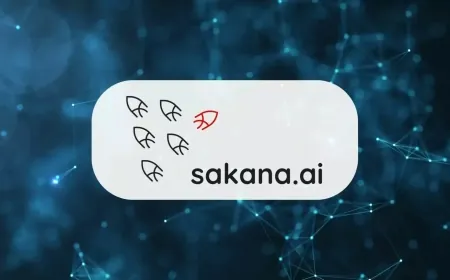Mastercard Launches AI Payment Tools with Agent Pay for Holiday Season
Mastercard introduces AI-powered Agent Pay, Insight Tokens, and On-Demand Decisioning to improve shopping and payment security.

Mastercard on Wednesday announced a set of new payment services that use artificial intelligence, including digital shopping assistants, data-sharing tools, and real-time approval systems. The programs will launch in the United States before the holiday season, with international expansion planned for 2025.
AI Assistants Handle Payments
The highlight of Mastercard’s announcement is Agent Pay, a system that allows AI-powered digital assistants to shop and complete payments on behalf of cardholders. Instead of manually entering card details at checkout, a consumer could rely on an AI assistant to process the transaction automatically.
For example, a traveler could ask their digital assistant to book flights and hotels, and the assistant would securely complete the payment using Mastercard’s network. This reduces the friction of online shopping and highlights how “agentic commerce” is moving from concept to reality.
Citi and U.S. Bank will be the first financial institutions to offer the feature to their cardholders. Mastercard also confirmed that platforms such as PayOS are preparing to embed the service into their systems, paving the way for AI-driven shopping at scale.
Developer Toolkit for Faster Adoption
To support businesses and developers, Mastercard launched the Agent Toolkit on its developer platform. This toolkit is designed to make the integration of AI assistants into payment systems more straightforward.
The toolkit connects AI systems directly with Mastercard’s APIs through the Model Context Protocol (MCP) server. For developers, this eliminates much of the complexity involved in connecting apps with financial infrastructure. Instead of lengthy approval processes and complex coding, the toolkit streamlines sign-ups and shortens deployment timelines.
This move reflects Mastercard’s recognition that widespread adoption of AI payments will only be possible if developers and businesses can easily plug into its systems. By offering pre-built access points, Mastercard is lowering barriers to entry for startups and established platforms alike.
Data Access With Customer Control
A major concern in AI adoption is data security. Mastercard addressed this with Insight Tokens, a framework that lets digital assistants use customer data only with explicit permission.
The tokens allow an AI assistant to draw insights from transaction histories, expense patterns, or travel preferences without exposing sensitive information. For example, an assistant could recommend cheaper alternatives to a frequently purchased service or manage monthly subscriptions more effectively.
SAP Concur, a major player in travel and expense management, has already signed on to use the system. Mastercard is also offering consulting services to help businesses apply these tokens responsibly. This step demonstrates how customer control over data will be central to making AI payments acceptable and trustworthy.
Partnerships to Build Standards
To ensure that AI payments develop in a consistent and secure way, Mastercard has partnered with some of the biggest names in technology and finance. Collaborators include Stripe, Google, and Ant International, all of whom share an interest in shaping the future of digital commerce.
One notable project under these partnerships is a credential verification system being developed with the FIDO Alliance. The goal is to verify merchants and transactions more rigorously before payments are processed. This could help reduce fraud, protect small businesses, and increase trust in digital transactions.
By working with competitors and partners alike, Mastercard is signaling that AI payments cannot be built in isolation. Industry-wide standards will be essential for scaling these technologies globally.
Real-Time Decisioning for Banks
Mastercard also announced a new product for banks and issuers called On-Demand Decisioning (ODD). This system allows financial institutions to control payment approvals in real time using customizable rules.
For instance, a bank could approve transactions instantly for a trusted long-term customer but flag or block suspicious activity without delay. The system also helps reduce “false declines,” where legitimate purchases are mistakenly rejected—a common frustration for both shoppers and merchants.
With ODD, issuers can fine-tune their rules to match customer profiles, risk levels, or purchase categories. This not only improves the customer experience but also strengthens fraud prevention. The tool was first presented at Mastercard’s RiskX Summit in Rome, signaling its importance to the company’s risk management strategy.
Stock Performance
Despite its aggressive innovation push, Mastercard’s stock has only slightly lagged the broader market. Shares are up 11% year-to-date, compared with a 12% gain in the S&P 100 Index.
In premarket trading on Wednesday, Mastercard shares slipped 0.26% to $582.51. Analysts say the company’s bet on AI could help close the performance gap, especially if Agent Pay and other tools gain traction among consumers, banks, and merchants.
Also Read: U.S. Blocks Intel, Samsung & SK Hynix from Producing Chips in China with American Equipment
































































